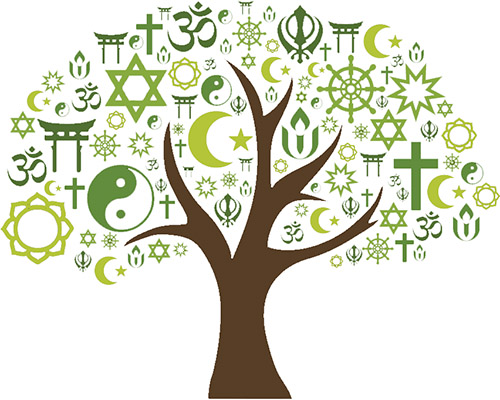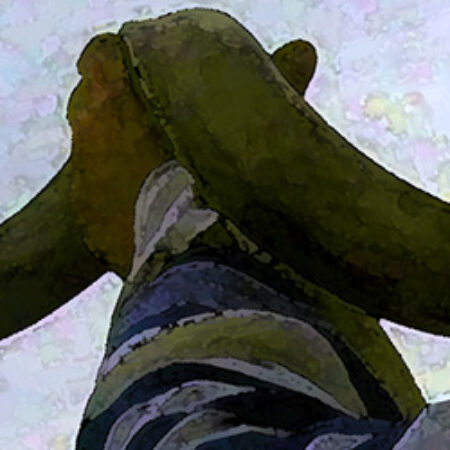So here I am, a good Catholic boy, leading a weekly Interspiritual service, chanting Om Shanti Om, Bismillah ir Rahman, Shalom Chaverim, and Christ Be With Me; reading from the Upanishads, Rumi and Meister Eckhardt. Am I just partaking in and promulgating the “Interfaith Heresy” that all religions are really one big happy family saying and teaching the same basic truths, while ignoring the startling differences that have kept us uneasy neighbors and even bitter enemies for millenia? They call this syncretism (“the attempted reconciliation or union of different or opposing principles, practices, or parties, as in philosophy or religion”), and it is usually pronounced with a bit of a sneer.
This question arises for me at times, as it does this week when I prepare a service for the Jewish high holy day Rosh Hashanah. Do I have reason and right to do this or am I blithely engaging in cultural and spiritual appropriation? Am I whipping up a big frothy syncretic smoothie and calling it lunch?
When these misgivings surface, I try to turn to wiser minds. For instance, who says all religions hold the same basic truths? Well, the Dalai Lama for one: “All major religious traditions carry basically the same message, that is love, compassion and forgiveness. The important thing is they should be part of our daily lives.”
“You must accept the truth from whatever source it comes,” said the great Jewish teacher Maimonides.
From Kahlil Gibran: “I love you when you bow in your mosque, kneel in your temple, pray in your church. For you and I are sons of one religion, and it is the spirit.”
Christian theologian Hans Kung famously remarked that until religions make peace, the world will be at war; and that religions would not make peace until they were in dialogue.
 I see offering a religious service that incorporates songs and scripture from all the major spiritual traditions (and even some minor ones) as a way of making and fostering peace, of bridging that divide. If I learn a Hindu chant to the goddess Lakshmi, I may not have a particular devotion to that feminine expression of the Divine, but I will have absorbed something of the Indian spirit that I cannot get from reading a text or watching a film, for example. A culture that seemed radically different from mine, now feels less so. To sing such a chant also requires me to recognize that “all Thy Names are One” and that the religious impulse is among the most universal aspects of being human; something that should unite us, not divide.
I see offering a religious service that incorporates songs and scripture from all the major spiritual traditions (and even some minor ones) as a way of making and fostering peace, of bridging that divide. If I learn a Hindu chant to the goddess Lakshmi, I may not have a particular devotion to that feminine expression of the Divine, but I will have absorbed something of the Indian spirit that I cannot get from reading a text or watching a film, for example. A culture that seemed radically different from mine, now feels less so. To sing such a chant also requires me to recognize that “all Thy Names are One” and that the religious impulse is among the most universal aspects of being human; something that should unite us, not divide.
To sing each others songs is to find together their unifying threads and the common call to the Divine from which they have arisen. To sing each others songs is also to disempower the tribalism that has set us apart and at odds throughout history.
The ram’s horn, or shofar, calls out with its wild voice of alarm in synagogues and temples across the world this Sunday evening. It is most importantly a call to awaken, to recognize where we have gone adrift and to return to our right course. We are called to turn ourselves in a new direction that is really an “old direction” – the direction of love, of justice and of peace. And that, I feel, is a good enough reason to feel a little bit Jewish this Sunday evening, even while singing a Hindu chant.
Peace/Shalom/Shanti
Roger


